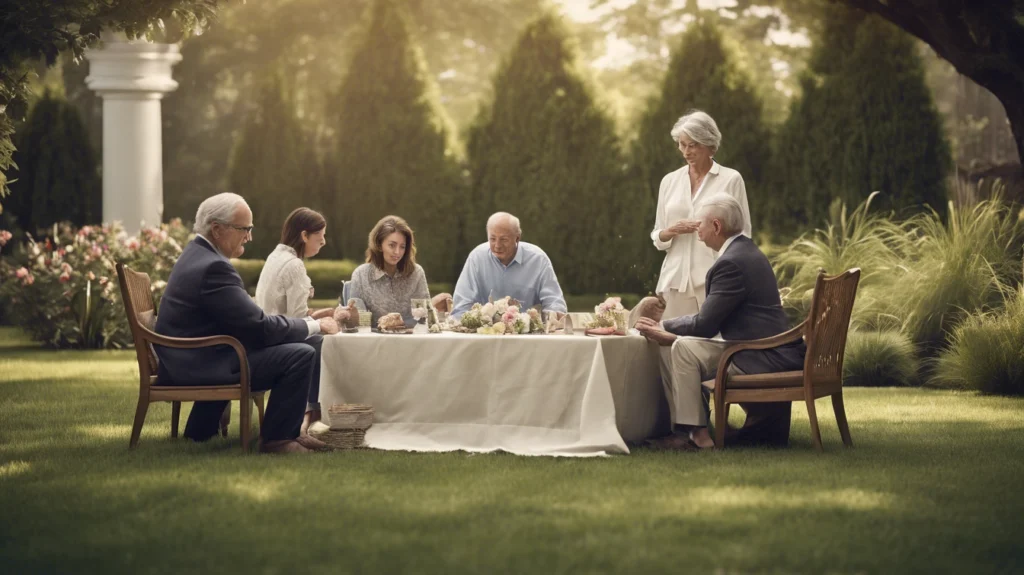Five Things to Know About Not Having an Estate Plan
Many individuals often overlook estate planning, especially when life gets busy. However, not having an estate plan can lead to significant legal and financial challenges for you and your loved ones, especially under New York State law. In 2024, the consequences of not having an estate plan are more important than ever due to changes in estate tax laws and probate processes. Below are five key things you need to know about the risks and implications of not having an estate plan in New York.
1. Intestate Succession Determines Who Inherits Your Assets
New York’s intestate succession laws will determine how your assets are distributed if you pass away without a valid will or estate plan. These laws prioritize your closest family members, such as your spouse, children, parents, and siblings. However, these rules may not align with your personal wishes, particularly if you have close friends or charitable organizations that you would have preferred to benefit from your estate. Furthermore, if you have children from a previous marriage or a blended family, intestate laws may not divide your assets the way you intended.
In New York, your surviving spouse typically inherits the first $50,000 of your estate plus half of the remaining estate, while your children split the other half. If you do not have a spouse or children, your parents, siblings, or distant relatives could inherit your assets, even if you have no close relationship with them.
2. Probate Becomes Mandatory Without a Will
Probate is the legal process by which a deceased person’s estate is administered and distributed according to either a will or intestate laws. When no estate plan is in place, the court must appoint an administrator to manage the estate. This process can be lengthy and expensive, often leading to delays in distributing assets to heirs. The absence of a will complicates the probate process because the court needs to identify heirs and determine how to divide the estate.
In New York, probate can take anywhere from nine months to two years, depending on the complexity of the estate and whether there are disputes among potential heirs. Legal and court fees can add up during this time, further depleting the estate’s value. Additionally, probate is a public process, meaning that details of your estate, including asset distribution and beneficiaries, will be accessible to the public.
3. Unintended Guardianship for Minor Children
One of the most critical components of an estate plan is naming a guardian for minor children. If you pass away without a will, the court will decide who will raise your children. While the court usually prioritizes close family members, the individual chosen may not be the person you would have preferred. This decision is based on what the court deems to be in the “best interests of the child,” which may not align with your values or wishes.
By creating an estate plan, you can designate a guardian who shares your parenting style, beliefs, and values, ensuring that your children are raised in the environment you envision. Without this in place, your children’s future could be left to the discretion of a judge who knows little about your family dynamics.
4. Higher Estate Taxes May Apply
New York State has its own estate tax, separate from the federal estate tax. For 2024, estates valued at over $6.58 million may be subject to New York’s estate tax, with rates ranging from 3.06% to 16%. If you don’t have an estate plan in place that accounts for tax-efficient strategies, a significant portion of your estate could go toward paying taxes, leaving less for your beneficiaries.
One of the key benefits of estate planning is the ability to minimize estate taxes through various legal tools such as trusts, gifting strategies, and charitable donations. Without such a plan, your heirs could face unexpected tax liabilities, reducing the overall value of the estate they inherit.
5. Lack of Health Care Directives and Power of Attorney
Estate planning is not only about distributing assets after death but also about making sure your medical and financial decisions are handled according to your wishes while you’re alive. Without a healthcare directive (also known as a living will) and a durable power of attorney, your loved ones may be unable to make crucial medical or financial decisions on your behalf if you become incapacitated.
Under New York State law, if you do not have a healthcare proxy in place, medical decisions may fall to a family member who may not fully understand your preferences for life-sustaining treatments, organ donations, or other medical interventions. Similarly, without a durable power of attorney, your family may need to go to court to be granted the legal authority to manage your financial affairs, which can be both time-consuming and costly.
How to Avoid These Consequences
The best way to avoid the legal and financial pitfalls of not having an estate plan is to create one that reflects your wishes and complies with New York State law. This includes drafting a will, setting up a trust if necessary, creating healthcare directives, and designing powers of attorney for financial and medical decisions.
Consulting an Estate Planning Attorney
At Morgan Legal Group, we specialize in helping New York residents protect their assets and ensure their wishes are carried out through comprehensive estate planning. Our team of experienced attorneys can guide you through the process, ensuring that all legal documents are properly executed and compliant with state law. We also take into account the latest changes in tax laws and estate planning regulations to create a plan that minimizes tax liability and maximizes the value of your estate.
Whether you’re just beginning the estate planning process or need to update an existing plan, our firm is here to assist. We understand the intricacies of New York law and can tailor a plan that fits your unique needs and circumstances.
Take Control of Your Future
Estate planning is vital in ensuring that your assets are protected and your loved ones are provided for. Please don’t wait until it’s too late to create an estate plan. By addressing these issues now, you can avoid legal complications, reduce tax liabilities, and make sure your personal and financial wishes are honored. Contact Morgan Legal Group today to begin the estate planning process and safeguard your legacy.









